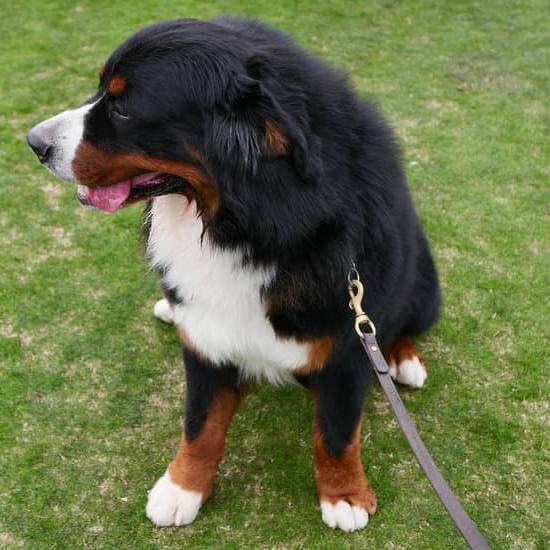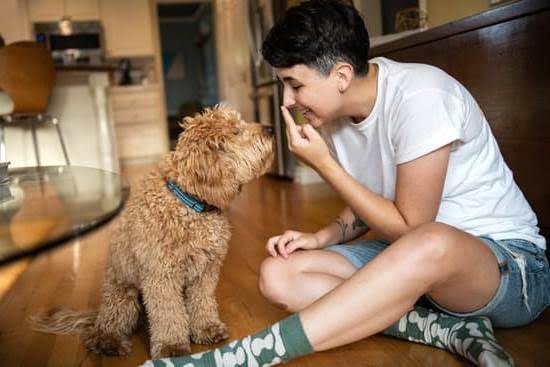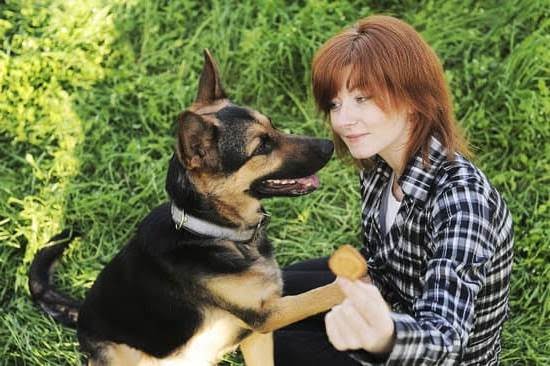How early can you train a service dog? Training a service dog is a crucial process that requires careful planning and consideration. From early socialization to specialized task training, each stage plays a vital role in ensuring the success of a service dog. In this article, we will explore the importance of training a service dog and how starting early can make a significant difference in their development.
Early socialization is often considered the foundation for a well-behaved service dog. Exposing them to various environments, people, and stimuli at a young age helps them become accustomed to different situations they may encounter while on duty. This early exposure not only helps in shaping their behavior but also builds their confidence and adaptability.
Understanding the puppy development stages is essential when it comes to training milestones. From the critical socialization period to adolescence, each stage presents unique challenges and opportunities for training. Consulting with a certified dog trainer can provide valuable insights into tailoring training methods to suit the individual needs and developmental progress of your service dog in training.
Early Socialization
During the early socialization period, it is essential to focus on positive reinforcement techniques to encourage desired behaviors in your service dog-in-training. This can include using treats, praise, toys, or clicker training to reward good behavior and reinforce obedience. By creating a positive association with new experiences and environments from an early age, you can help ensure that your service dog remains calm, focused, and responsive in different situations throughout their training and working life.
In addition to exposure to new stimuli, early socialization also involves teaching basic manners and obedience commands to set a strong foundation for future training. Teaching your service dog-in-training basic commands such as sit, stay, come, heel, and down can help establish clear communication between you and your canine companion. These foundational skills will be built upon as they progress through more advanced training stages tailored to their specific tasks and responsibilities as a service dog.
Puppy Development Stages
Neonatal Stage
During the neonatal stage, which lasts from birth to about two weeks of age, puppies are completely dependent on their mother for care. At this stage, they are still deaf and blind, relying on their sense of touch and smell to navigate the world around them. While training does not begin during this stage, it is crucial for breeders to provide a safe and nurturing environment for the puppies during these early days.
Transitional Stage
The transitional stage occurs from approximately two to four weeks of age when puppies start to gain their senses and become more aware of their surroundings. This is a critical time for early socialization with both humans and other animals. Gentle handling and positive interactions during this stage can help set the foundation for future training success. It is important to introduce different stimuli in a controlled manner to prevent overwhelming the young puppies.
Socialization Period
From about three weeks to three months of age, puppies enter the socialization period where they are most receptive to new experiences. This is a crucial time for exposing them to a variety of people, environments, sounds, and objects in a positive way. Properly socializing a puppy during this period can help prevent fearfulness and aggression later in life.
This stage lays the groundwork for future service dog training by building confidence and shaping behavior patterns. It is important to strike a balance between socialization activities and allowing the puppy enough rest and relaxation.
By understanding the various development stages of puppies and implementing appropriate training techniques at each milestone, you can set your service dog up for success in its future role. Starting training early can help foster good behavior habits while also building a strong bond between you and your canine companion. Consultation with professionals can provide valuable guidance on how early you should begin training your service dog based on its individual needs and developmental progress.
Professional Advice
When considering how early you can train a service dog, one of the most crucial steps is seeking professional advice through consultation with a certified dog trainer. These experts have the knowledge and experience to guide you through the process of training a service dog from an early age. Here are some key reasons why consulting a certified dog trainer is essential:
- Expertise in Behavior: Certified dog trainers understand canine behavior and can provide valuable insights into how to effectively train a service dog.
- Customized Training Plans: A certified dog trainer can create personalized training plans that cater to your specific needs and the requirements of your service dog.
- Problem-Solving Skills: In case you encounter challenges during the training process, a certified dog trainer can offer solutions and techniques to address them effectively.
By consulting with a certified dog trainer, you can ensure that your service dog receives appropriate training that sets them up for success in their role. These professionals play a vital role in guiding both you and your service dog towards building a strong foundation for training.
- One-on-One Guidance: Working closely with a certified dog trainer provides you with individualized attention and support throughout the training process.
- Evaluating Progress: A trainer can help you assess your service dog’s progress and make necessary adjustments to the training plan as needed.
- Continuous Support: Even after the initial stages of training, a certified dog trainer can offer ongoing support and guidance to maintain your service dog’s skills over time.
Basic Obedience Training
Importance of Consistency
Consistency is key when it comes to basic obedience training for service dogs. Training sessions should be regular and structured to reinforce good behavior and prevent undesirable habits. Consistent commands and positive reinforcement will help the dog understand what is expected of them in different situations.
Building Trust and Confidence
Basic obedience training not only teaches commands but also helps build trust and confidence in service dogs. Through successful completion of tasks and consistency in training, dogs gain confidence in their abilities to assist their handlers effectively. This trust between the dog and handler is essential for a successful service dog partnership.
Positive Reinforcement Techniques
Using positive reinforcement techniques such as rewards, praise, and treats during basic obedience training can be highly effective. This approach motivates the dog to repeat desired behaviors while strengthening the bond between the dog and handler. Positive reinforcement creates a positive learning environment for the service dog, making training sessions enjoyable and productive.
Specialized Tasks Training
When it comes to training a service dog for specific tasks, it is essential to tailor the training methods to meet the individual needs of the handler. Service dogs are trained to perform a wide range of tasks depending on the disability or condition of their owner. From guiding individuals who are visually impaired to alerting those with medical conditions, each service dog’s training regimen must be customized accordingly.
One crucial aspect of specialized tasks training is understanding the unique requirements of the handler and selecting tasks that will enhance their quality of life. For example, a service dog for someone with mobility issues may need to be trained in tasks such as retrieving items, opening doors, or providing balance support. On the other hand, a medical alert dog may need to learn how to detect changes in their owner’s health condition and provide timely assistance.
To ensure the success of specialized tasks training, consistency and positive reinforcement are key. By establishing clear communication and building trust between the handler and the service dog, they can work together effectively as a team. Additionally, seeking guidance from a certified dog trainer who specializes in service dog training can provide valuable insights on how to train for specific tasks and address any challenges that may arise.
| Service Dog Task | Training Requirement |
|---|---|
| Guide for Visually Impaired | Orientation skills, obstacle navigation |
| Medical Alert Dog | Scent detection training, response signaling |
Overall, tailoring training to specific needs ensures that the service dog can effectively support their handler in their daily activities and improve their overall independence. It is important to start this specialized task training at an appropriate age considering both the developmental needs of the dog and the urgency of assisting the handler. By taking a personalized approach to training, service dogs can fulfill their roles successfully and make a positive impact on the lives of those they serve.
Age Considerations
When it comes to training a service dog, one of the key considerations is finding the right balance between starting early and ensuring that the dog’s developmental needs are met. Many experts recommend beginning training as early as 8 weeks old, as this is the optimal time for puppies to start socializing and learning basic commands. However, it is important to be mindful of not overwhelming the young pup with too much too soon.
During the earliest stages of training, the focus should be on socialization and building a strong foundation of trust and obedience. Puppies should be exposed to various environments, people, and other animals to ensure they develop into well-adjusted service dogs. Basic obedience commands such as sit, stay, and come should also be introduced gradually to help instill good behavior from an early age.
It is crucial to monitor the puppy’s progress closely throughout the training process and make adjustments as needed based on their individual developmental needs. Consulting with a certified dog trainer can provide valuable guidance on how to tailor the training program according to the specific breed characteristics and temperament of the dog. By taking a balanced approach to early training, you can set your service dog up for success in their important role.
| Training Milestones | Consideration |
|---|---|
| Socialization | Expose puppy to various environments |
| Obedience Commands | Introduce basic commands gradually |
Potential Risks
When considering how early you can train a service dog, it is important to also understand the potential risks associated with starting the training process too soon. While early socialization and basic obedience training are crucial for a service dog’s development, pushing a puppy into intensive training too early can have negative consequences on their physical and emotional well-being.
One of the main dangers of starting training too early is the risk of overwhelming the young dog. Puppies, like human infants, have limited attention spans and cognitive capabilities. Introducing complex tasks or rigorous training schedules before they are ready can lead to frustration, stress, and even behavioral issues in the long run. It is essential to strike a balance between introducing foundational skills and allowing the puppy to grow and mature at their own pace.
Another risk of starting training too early is the potential for physical strain or injury. Service dogs often perform physically demanding tasks that require strength, agility, and coordination.
Pushing a puppy to practice these tasks before their muscles and joints have fully developed can result in long-term damage or chronic pain. Consulting with a certified dog trainer who specializes in service dog training can help determine the appropriate age to start specific tasks based on the individual needs and capabilities of the dog.
Accelerated Training Programs
When it comes to training a service dog, time is of the essence. Accelerated training programs offer an alternative solution for those wondering how early can you train a service dog. These programs are designed to fast-track the training process and help dogs reach their full potential at a much quicker pace.
One common feature of accelerated training programs is the intensive and immersive nature of the training. Dogs in these programs receive multiple daily training sessions that focus on obedience, socialization, and specialized tasks tailored to their owner’s needs. This structured approach allows for rapid skill development and ensures that the dog is ready to assist its owner in a shorter amount of time.
Another benefit of accelerated training programs is the expert guidance provided by certified dog trainers. These professionals have extensive experience working with service dogs and understand the unique challenges and requirements of early training. Their expertise can make a significant difference in ensuring that the dog reaches its full potential while also maintaining good physical and emotional well-being throughout the training process.
Overall, accelerated training programs offer a promising option for those looking to start training a service dog at an early age. By exploring these options, owners can provide their future service dog with the necessary skills and foundation to become a reliable companion and support system for years to come.
Conclusion
In conclusion, the question of how early can you train a service dog is a crucial one that requires careful consideration. While it is essential to start training early to ensure a well-behaved and skilled service dog, it is equally important to balance early training with the developmental needs of the puppy. Early socialization plays a significant role in shaping the behavior and temperament of a service dog, laying the foundation for a successful partnership between dog and owner.
Consulting with a certified dog trainer is highly recommended to establish a structured training plan tailored to the specific needs of both the dog and its owner. From basic obedience skills to specialized task training, each stage in the development of a service dog should be approached thoughtfully and patiently. This not only ensures that the dog receives proper guidance but also strengthens the bond between them and their owner.
Ultimately, the lifelong bond between a service dog and its owner is built on trust, companionship, and mutual understanding. By starting training at an appropriate age, respecting the puppy’s developmental stages, and seeking professional advice when needed, individuals can nurture this special relationship for years to come. The dedication and commitment invested in early training will undoubtedly pay off as the service dog grows into a reliable companion who enriches the lives of those they assist.
Frequently Asked Questions
At What Age Can You Train a Puppy to Be a Service Dog?
The ideal age to start training a puppy to be a service dog is around 7-8 weeks old. Early training and socialization are crucial for their development into a reliable service animal.
What Is the Best Age to Send a Dog to Training?
The best age to send a dog to training depends on the specific needs and goals of the owner. Typically, dogs are sent for formal training between 6 months to 1 year of age when they have developed some maturity.
How Long to Train a PTSD Service Dog?
Training a PTSD service dog can take anywhere from several months to up to two years, depending on the individual dog’s abilities and the intensity of the training program. It requires patience, consistency, and specialized techniques to properly train these unique service animals.

Welcome to the blog! I am a professional dog trainer and have been working with dogs for many years. In this blog, I will be discussing various topics related to dog training, including tips, tricks, and advice. I hope you find this information helpful and informative. Thanks for reading!





